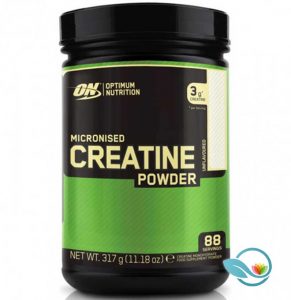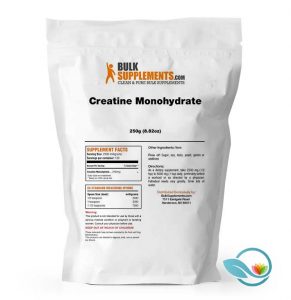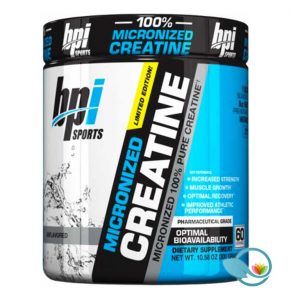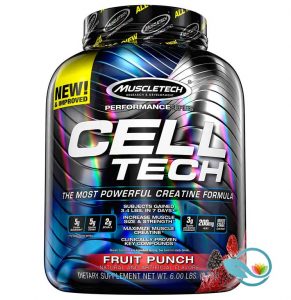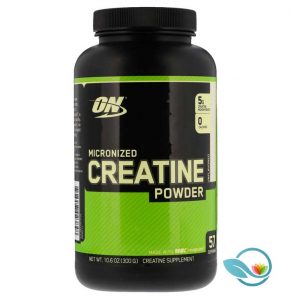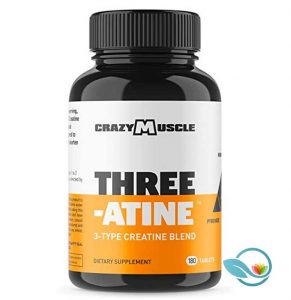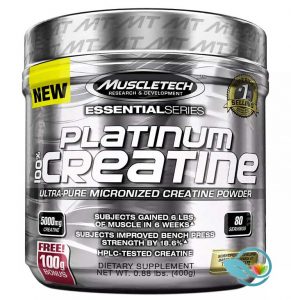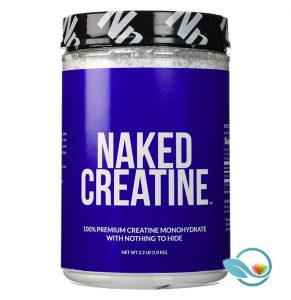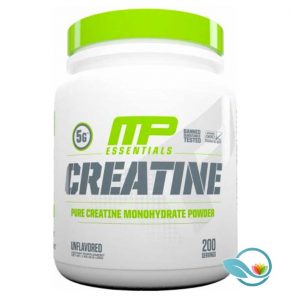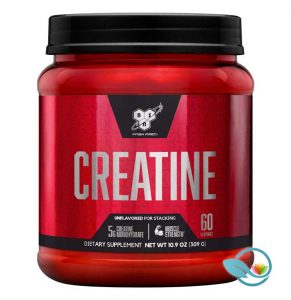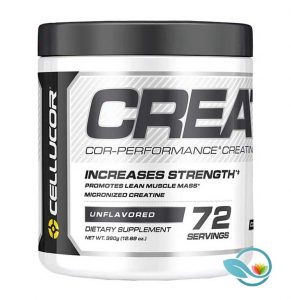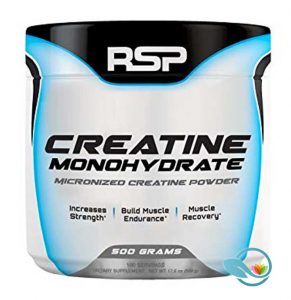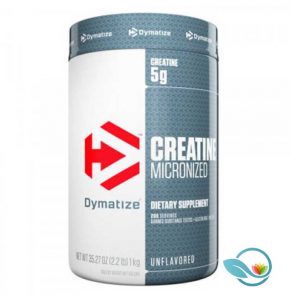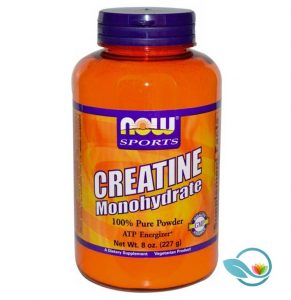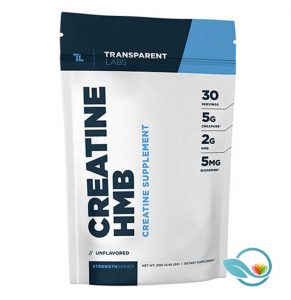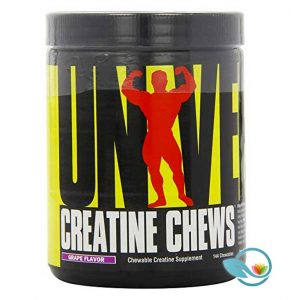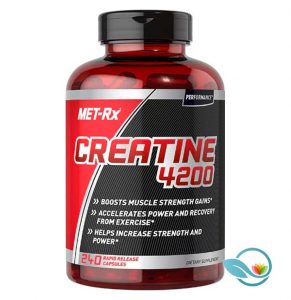Muscle
Best Creatine Supplements of 2019
Published
7 years agoon
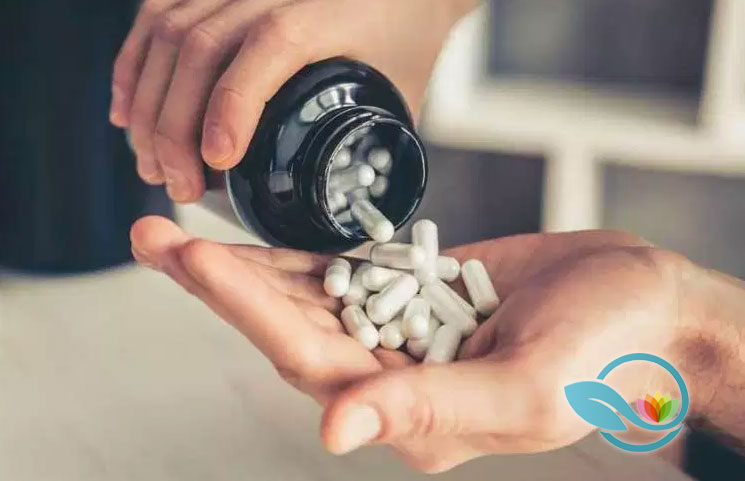
Creatine is a popular bodybuilding supplement that can help you add muscle and gain strength.
Some people take creatine to gain mass and size. Others take creatine to gain lean muscle mass, helping them become stronger without bulking up.
Some even take creatine as a nootropic, using it to improve brain health and cognition.
Whatever your desired benefits may be, creatine may be able to help. Today, we’re highlighting the top creatine supplements of 2019.
Rankings
Optimum Nutrition Micronized Creatine Powder
Optimum Nutrition is one of the best-known names in the bodybuilding supplement space. The company’s Micronized Creatine Powder is particularly popular and well-rated. In fact, it’s the number one bestseller in the creatine category on Amazon. And, with over 5,000 reviews and an average rating of 4.4 stars out of 5, it’s also one of the best-rated creatine powder supplements.
Few other supplements compete with Optimum Nutrition Creatine on price. Amazon sells 114 servings for just $14. Each serving is one rounded teaspoon (5.25g), which contains 5g of creatine monohydrate in total.
Optimum Nutrition advertises a range of different creatine benefits, including better energy, endurance, and recovery after a workout. It can also increase muscle size, strength, and power. ON also claims to have “micronized” the formula to get the most out of each dose.
The only real drawback of this supplement? It doesn’t come with a scoop. You’ll need to use your own teaspoon when pouring the creatine powder into water, a shake, or the beverage of your choice. Overall, this is the best creatine supplement on the market by a long shot.
BulkSupplements Pure Micronized Creatine
The BulkSupplements Pure Micronized Creatine powder is even more popular and better-rated than the Optimum Nutrition creatine supplement above, although it’s slightly more expensive. Today, the BulkSupplements.com creatine powder has over 12,000 customer reviews and an average rating of 4.7 stars out of 5. Few other Amazon supplements come close to those types of numbers.
Each package contains 100 servings, with each serving including 2500mg of creatine monohydrate. That’s much lower than the 5g of creatine monohydrate you get in the Optimum Nutrition supplement – especially since both are around the same price ($13 to $14 on Amazon).
However, the largest BulkSupplements size provides the best value. You get 200 x 2.5g servings for under $17. If you plan on taking a lot of creatine, then either the Optimum Nutrition or BulkSupplements options provide incredible value and high doses of creatine.
BPI Sports Micronized Creatine
BPI Sports Micronized Creatine claims to increase strength, reduce fatigue, and boost lean muscle building while delivering incredible value compared to other supplements on this list.
Each container of BPI Sports Micronized Creatine includes 60 servings of creatine monohydrate, with each serving consisting of 5g of creatine monohydrate. BPI Sports sells containers on Amazon for under $7, which makes the value per ounce similar to the two supplements at the top of this list.
Overall, BPI Sports Micronized Creatine is a no-nonsense creatine supplement that provides a high dose of pure creatine at a reasonable price point. What more do you want from a creatine formula?
MuscleTech Cell Tech Creatine Monohydrate Formula Powder
MuscleTech claims their Cell Tech creatine is “the most powerful creatine formula” available today. It’s priced much higher than competing supplements on this list, but it also contains far more than just creatine.
Each $30 bottle contains 56 servings of formula, with each serving including 5g of creatine monohydrate, 5g of creatine citrate, 2g of BCAAs, 3g of taurine and alanine, and 200mg of ALA. It’s a powerful formula that provides a huge amount of creatine, amino acids, and other compounds that should boost lean muscle mass in various ways.
Cell Tech is available in fruit punch, grape, or orange flavors. It’s particularly popular among bodybuilders, and it’s one of the best post-workout formulas you can find today.
Optimum Nutrition Micronized Creatine Monohydrate Capsules
Optimum Nutrition’s powdered creatine is at the top of this list for good reason. However, the company also makes a separate creatine supplement in capsules. If you don’t like creatine powder and are looking for a different delivery method, then ON’s creatine capsules may be the right choice for you.
Each package contains 100 capsules, with each capsule containing 1.25g of creatine monohydrate. You take two capsules at a time to get 2.5g of creatine. On Amazon, you can buy a 100 capsule ($8), 200 capsule ($13) or 300 capsule ($22) bottle.
Overall, ON’s creatine capsules don’t provide the same value per ounce as the pure creatine powder, but that’s to be expected for a capsulated supplement. Some find it more convenient than a powder. Others just like the pre-measured, easy-to-take dose.
Crazy Muscle Three-Atine
Washington-based Crazy Muscle may not be a well-known supplement manufacturer compared to Optimum Nutrition and other A-listers here. However, the company makes a popular creatine pill supplement. With an average rating of 4.8 stars and 800+ customer reviews on Amazon, it’s also the best-rated creatine supplement on this list.
Each 90 capsule bottle is priced at $14. You take three capsules per serving to get a dose of 4800mg of creatine monohydrate powder. Crazy Muscle has also added in two different versions of creatine for added muscle building benefit, including 51mg of creatine alphaketoglutarate and 150mg of creatine pyruvate. Crazy Muscle claims these three versions of creatine “maximize creatine absorption”.
At $14 for 30 servings (90 capsules), Crazy Muscle’s Three-Atine isn’t as cheap as the formulas above. However, the price is reasonable considering you get two different versions of creatine not found in any other supplement listed here.
MuscleTech Platinum Creatine
MuscleTech’s Platinum Creatine is a popular and well-rated creatine supplement sold on Amazon at a price of $9 for 80 servings, with each serving consisting of 5g of micronized creatine monohydrate. There are no fillers, added sugars, or other additives: just creatine.
Just like Optimum Nutrition’s creatine supplement at the top of our list, this is a no-nonsense creatine formula that provides a strong dose (5g) of creatine in each serving at a very reasonable price.
Naked Creatine
Naked Creatine by Naked Nutrition is priced reasonably compared to competing creatine supplements on this list, offering 200 servings for around $20, with each serving consisting of 5g of creatine monohydrate. There are no other listed ingredients: there’s just 100% pure micronized creatine monohydrate.
Naked Nutrition has made a name for itself by offering no-nonsense supplements free of sweeteners, flavors, colors, and other compounds. The company’s Naked Creatine supplement lives up to its name.
MP Essentials Micronized Creatine
Muscle Pharm makes a popular creatine supplement under their MP Essentials brand. The supplement claims to amplify strength and power while improving athletic performance by providing your body with a high dose of creatine. Each 1 scoop serving consists of 5g of creatine monohydrate, making this supplement similar to other strong-dosed creatine supplements on this list.
Pricing on Amazon for this supplement is unusual. You can pay $8 for 60 servings or $18 for 120 servings, for example. Or, you can pay $14 for 200 servings. The first two options are expensive compared to other supplements on this list, but the last option is the best-value supplement overall.
Another unusual thing about the MP Essentials creatine is that some customers complain about a gritty powder that doesn’t dissolve well in water. Overall, however, this seems like a decent-strength creatine supplement that offers the best value on this list (at least when buying 200 servings for $14).
BSN Creatine
BSN makes a popular micronized creatine supplement that’s priced higher than most competing supplements here but claims to offer better bioavailability and mixing. The formula is micronized to easily mix in liquid. BSN claims that by taking it daily, you can support lean muscle mass, support strength and power, and enhance performance.
Each serving contains 5g of micronized creatine monohydrate. There are 60 servings in each container, with a container selling for around $12 on Amazon. That’s higher than most other supplements here, although many reviewers state that the formula mixes really well with water, so some are willing to pay a premium for better mixability.
Cellucor Corperformance Creatine
Cellucor Corperformance Creatine offers 72 servings for under $10, with each serving consisting of 5g of micronized creatine monohydrate.
This is also one of the few creatine supplements on this list with flavoring options. You can buy Corperformance Creatine in cherry limeade, icy blue razz, or fruit punch varieties. It’s also available in softgel or unflavored form.
Cellucor is best-known for its popular C4 preworkout, but the Corperformance Creatine is another bestselling product from the company that may be worth the price. It’s more expensive than most creatine supplements on this list, although it still provides a strong dose of micronized creatine in each serving.
RSP Creatine Monohydrate
RSP Nutrition’s Creatine Monohydrate supplement functions in a similar way to most other pure creatine formulas on this list. You get 100 servings of 5g of creatine monohydrate for under $9. That’s very good value for micronized creatine.
There are no other listed ingredients, and the supplement is unflavored. RSP Nutrition claims their formula will improve strength, recovery, and lean muscle gain. With an average rating of 4.6 stars out of 5 on Amazon, it’s also one of the higher-rated creatine supplements available today.
Dynamite Creatine Micronized
Dynamite’s Micronized Creatine formula provides 5g of creatine in each serving, with each container offering 200 servings at a price of under $19. That’s better value than most other creatine supplements on this list.
Dynamite’s creatine claims to improve muscle performance during high intensity activities and increase lean muscle growth after workouts. Benefits are similar to all other creatine supplements on this list.
NOW Sports Creatine Monohydrate
Although it’s not the best-rated creatine supplement on Amazon, NOW Sports Creatine Monohydrate offers some of the best-value creatine in the industry, including 200 servings of creatine for around $16 (5g of creatine monohydrate per serving).
NOW Sports is also a reputable creatine provider with a history of making good supplements across the industry. Although some customers complain about poor mixability, most customers agree that NOW Sports offers very good value overall.
Transparent Labs StrengthSeries Creatine HMB
Transparent Labs isn’t the best-known supplement maker in the space, and their StrengthSeries Creatine HMB formula isn’t even sold on Amazon. However, the company claims their Creatine HMB product is one of the best in the industry. Each bag is priced at $39 for just 30 servings, making this one of the most expensive creatine supplements on the list. You can buy the formula in blue raspberry flavor or unflavored.
What makes Creatine HMB worth two or three times the price of most other creatine supplements on this list? The formula contains 5,000mg of Creapure creatine monohydrate in each one scoop serving (9.9g per scoop) along with 2,000mg of beta-hydroxy beta-methylbutyrate (HMB). HMB works in a similar way to creatine by increasing strength and lean body mass while decreasing fat mass.
Overall, this supplement gives you strong doses of two proven strength building ingredients. If you like the sound of the effects of HMB and want to maximize your strength gains, then Transparent Labs StrengthSeries Creatine HMB may be worth the premium.
Universal Nutrition 100% Pure Creapure Creatine Monohydrate Chews
Universal Nutrition makes a unique chewable creatine supplement. Instead of taking a creatine powder or tablet, you take a chew.
Each four chewable serving contains 5g of creatine monohydrate, which is similar to the powdered supplements above. There are no other listed active ingredients, although there are 4g of sugar in each serving. You can buy it in grape or orange flavor.
Universal Nutrition’s chewable creatine tablets are more expensive than most creatine options on this list, but that’s to be expected for chewable supplements. You’ll pay $14 for a container with 36 servings (144 chewables).
MET-Rx Creatine 4200
MET-Rx Creatine 4200 provides a strong dose of creatine in capsulated form. You get 240 capsules for around $9 from Amazon. However, you’ll need to take 6 capsules to get 4200mg of creatine monohydrate, which is still less than the 5g serving size you see in most powdered creatine supplements.
However, if you don’t make taking lots of capsules and enjoy the convenience of a capsulated supplement, then MET-Rx Creatine 4200 may be the right choice for you.
Our Rankings
Many of the creatine supplements above make similar promises. They claim to boost lean muscle mass, for example, and improve strength gains in various ways. At first glance, it can be difficult to distinguish good creatine supplements from bad ones.
To compile the rankings above, our editorial team pored over the most popular creatine supplements, then separated them according to the following factors:
Creatine Dosage: If you’re taking a creatine supplement, then you want to get a strong dose of creatine at a reasonable price. Most creatine supplements above used a dose of 5g per serving. Some, however, lowered the dose to 2.5g per serving. Generally, 5g is the dose at which creatine is found to be most effective, although some may want to customize dose based on their unique fitness goals.
Type of Creatine: There are six different types of creatine. Creatine monohydrate and creatine anhydrous are the two most popular versions of creatine, however. Creatine monohydrate is creatine paired with a molecule, while creatine anhydrous is creatine monohydrate with that water molecule removed. Creatine anhydrous is 100% creatine by weight, while creatine monohydrate is 90% creatine by weight.
Price and Value: Some creatine supplements are unusually expensive, charging twice the price for the exact same creatine monohydrate powder used in other supplements. We emphasized supplements with good value, although we still tried to feature a range of supplements across multiple price points to suit all budgets.
Other Ingredients: Most popular creatine supplements are unflavored. Some supplements, however, contain additional flavors or sweeteners. We featured both types of supplements, although most prefer unflavored creatine that can be added to an existing shake or beverage.
Delivery Method: Most creatine supplements come in the form of a powder. However, we also wanted to feature supplements in softgel or tablet form. Generally, these supplements have a lower dose than powdered supplements (even when taking 4 to 6 capsules per serving). However, some people find them more convenient.
Free of Common Allergens: Some creatine supplements advertise themselves as being free from soy, gluten, or eggs. There’s never any soy, gluten, or eggs in pure creatine. However, manufacturers that specifically advertise their supplements as being free of these allergens tend to have a higher quality manufacturing process.
Packaging: Most creatine supplements come in a convenient tub or resealable package. Some packaging, however, is higher-quality than others. We don’t like when cheap unsealable packages fall over and spill creatine all over our counter, for example.
Advertised Benefits: Some supplement makers – particularly in the bodybuilding supplement space – advertise extreme benefits. They claim you can expect to double your muscle mass in a week by taking creatine, for example. We emphasized manufacturers with honest advertised benefits.
Who Should Take Creatine?

People take creatine for a number of different reasons. However, most people take creatine to gain lean muscle mass and improve strength, which is why creatine is particularly popular among athletes and bodybuilders.
Creatine, just like protein powder and similar compounds, is legal in every major athletic league. Many professional sports teams recommend creatine supplementation for their athletes. It can preserve muscle mass even when performing at intense levels, for example. Creatine can also enhance recovery.
Of course, creatine doesn’t have to be used to bulk up. Some people use creatine to maintain lean muscle mass, for example. When dosed properly, creatine can help you gain strength without bulking on considerable size.
Creatine has also been studied for its ability to rebuild mass after an injury or accident. Some people take creatine after experiencing significant muscle loss or needing to rebuild strength in an area.
In recent years, creatine has also been used for a surprising new purpose: as a cognitive aid or nootropic. Growing research suggests that creatine may be able to improve cognition and brain health. Your brain burns creatine for energy, so taking a creatine supplement may be beneficial.
Benefits of Creatine

Creatine has been extensively studied for decades. Over the years, creatine supplementation has repeatedly proven its effectiveness for preserving and gaining lean muscle mass. In recent years, however, creatine has also been linked to some surprising new benefits.
Instead of summarizing each individual study on creatine, let’s look at a review study that did all the hard work already. This review study published in 2003 by a researcher at Baylor University analyzed results from several leading creatine studies. The researcher concluded that creatine’s effects on athletic performance were both well-validated and fairly well-understood.
Creatine was observed to have specific and powerful effects on short-term power production in muscles, for example, making it ideal for those who want to maximize lift strength or sprint speed.
Creatine is also good for building more muscle overall. Creatine supplementation was found to increase your ability to lift for more reps, allowing you to lift heavier weights repeatedly to increase muscle building.
However, researchers have also found that creatine has minimal effect on boosting performance for longer-duration tasks. It has minimal impact on long sprinting performance or aerobic exercise, for example.
The reason creatine is ideal for short-term bursts of energy is simple: your body relies on its creatine stores to provide energy for short-term bursts. It relies on these stores less for longer-duration exercise.
Overall, after analyzing over 500 research studies on creatine, the researcher concluded that short-term creatine supplementation (taking 20g per day for 5 to 7 days) was sufficient for increasing creatine levels in the body by 10 to 30% while raising phosphocreatine stores by 10 to 40%.
The researcher also found that of 300 studies exploring the muscle building value of creatine, 70% of the studies reported statistically significant results in favor of creatine supplementation. Creatine improved maximal power and strength 5 to 15%, repetitive sprint performance 5 to 15%, and similar short-term tasks at a similar rate.
In a follow-up study from 2017, the same researcher (Kreider) who published the review from 2003 expressed benefits associated with creatine, describing creatine as “one of the few nutritional supplements for which research has consistently shown has ergogenic benefits” among “a number of potential health benefits”. Kreider also described creatine as having a “favorable safety profile”.
Creatine also seems to work better when paired with protein. One of the biggest studies on this effect was published in 2001. Researchers at Canada’s St. Francis Xavier University tracked the progress of 36 men over six weeks of resistance training. One third of the men were given a protein and creatine supplement, another third were given just a protein supplement, and the final third were given a placebo.
At the conclusion of the study, researchers found that the protein and creatine group had the greatest increase in lean muscle mass. That group also increased their maximum bench press and knee extension strength more than either other group.
Because of the results of this study, researchers concluded that creatine and protein worked best when used together. They complement the effects of one another while helping participants gain lean muscle mass.
However, the study found that creatine and protein didn’t lead to significantly higher gains in all exercises. The protein group, for example, had equal gains in squat strength and knee torque compared to the protein and creatine group. Both groups, however, had significant gains compared to the placebo group.
Creatine isn’t just for hardcore athletes, however. As mentioned above, some people use creatine to rebuild muscle after injuries or accidents. In this 2001 study, researchers in Belgium found that creatine supplementation was helpful for people needing to rebuild muscle mass after an injury or accident.
During the study, 22 participants kept their (healthy) legs immobilized in a cast for two weeks. Then, the participants underwent a rehabilitation program to measure and build muscular strength in the immobilized leg. 11 participants received a creatine supplement during this process, while the other 11 did not.
Researchers tested leg strength at the conclusion of the program and found that the creatine group gained back their strength more quickly than the placebo group.
Researchers connected this effect to higher markers of protein synthesis in the muscles. This effect led researchers to conclude that creatine helps directly increase the cross-sectional area of muscle fibers during a rehab program. Because of this study and others, creatine may be an ideal way to rebuild muscle after an injury or loss of muscle mass in an area.
Creatine has been observed to have similar effects in older adults and the elderly. As the body ages, it becomes increasingly frail. Frailty is one of the biggest causes of disability, falls, and injuries among the elderly. Building and preserving muscle mass can help prevent frailty and reduce the effects of “sarcopenia”, which is the shrinking of muscle fibers that happens in older adults if they don’t exercise.
One study published in the Journal of Cachexia, Sarcopenia, and Muscle in 2016 analyzed the effects of creatine on the elderly. Researchers gave participants a resistance training program, then told half the group to take creatine and the other half to take a placebo.
After 12 weeks of resistance training, researchers analyzed the strength gains in each group. Both groups increased muscle strength and muscle strength as expected, although the creatine group increased strength and muscle mass significantly more than the placebo group.
Because of the results of this study, it’s believed creatine is an effective way for older adults and the elderly to preserve lean muscle mass with age, reducing the risk of injury, disability, falls, and frailty.
Creatine may also be beneficial for those who have recently suffered heart failure. There have been several studies examining the connection between creatine and heart failure. Researchers found that those who took creatine in addition to receiving standard medical care increased the amount of exercise they could do before becoming fatigued compared to a placebo group. Getting tired easily is one of the symptoms of heart failure.
A similar study on 20 people with heart failure found that creatine supplementation in addition to standard medication helped to increase body weight and improve muscle strength.
We hinted at creatine’s nootropic effects above. Over the decades, most creatine studies have focused on muscle mass and strength gains associated with creatine. Exciting new research in recent years, however, has explored the nootropic benefits of creatine.
This study published in 2019 in the European Journal of Sports Science, for example, reviewed all available studies to determine the cognition enhancing benefits of creatine. Researchers found multiple studies showing that creatine can boost cognitive function and prevent the deterioration of cognitive performance in stressful situations – including when you’re at high altitudes or sleep deprived.
Some of the most intriguing research on creatine, however, has been done on creatine and concussion recovery. It’s possible that creatine could enhance concussion recovery, helping your body maintain brain health after a concussion. Early research indicates that creatine can reduce the negative cellular cascades that are activated after a concussion.
This study from 2017, for example, explored the potential use for creatine supplementation following mild concussions. Researchers concluded that creatine supplementation “reduced neuronal damage, protected against the effects of cellular energy crisis and improved cognitive and somatic symptoms.” For all of these reasons, researchers recommended future research into creatine and concussion recovery.
Surprisingly, there may even be anti-cancer benefits to creatine. The University of Pennsylvania Hershey, for example, summarized multiple creatine studies on cancer by stating, “Preliminary studies suggest that creatine may have anticancer properties.”
That same page claims creatine may also be beneficial to those with muscular dystrophy, Parkinson disease, ALS or Lou Gehrig’s disease, and chronic obstructive pulmonary disease (COPD), among other conditions.
Interestingly, there’s one group of people who have experienced few benefits from creatine supplementation: people who already have high levels of creatine in their muscles. Some people naturally have higher levels of creatine in their bodies, and these people do not get the same energy-boosting benefits from taking extra creatine via supplementation.
Side Effects of Creatine

Creatine appears to be a safe supplement for most people to take. Creatine is a naturally-occurring substance found in meat and fish. Your body also produces creatine naturally in your livers, kidneys, and pancreas. For all of these reasons, it’s unlikely you’re allergic to creatine or will experience problematic reactions from ordinary creatine supplementation.
However, various side effects of creatine have been reported, including weight gain, muscle cramps, muscle strains and pulls, upset stomach, diarrhea, dizziness, high blood pressure, liver dysfunction, and kidney damage.
Nevertheless, most studies on creatine have found no significant side effects at the doses used for up to 6 months.
It’s also important to note that people with liver disease, kidney disease, or high blood pressure should not take creatine.
There have also been small reports of tainted creatine supplements, which is why it’s important to buy your creatine from reputable manufacturers.
One major study reviewing the safety of efficacy of creatine actually found that banning creatine was associated with more problematic side effects than allowing creatine:
“Given all the known benefits and favorable safety profile of creatine supplementation reported in the scientific and medical literature, it is the view of ISSN that government legislatures and sport organizations who restrict and/or discourage use of creatine may be placing athletes at greater risk—particularly in contact sports that have risk of head trauma and/or neurological injury thereby opening themselves up to legal liability.”
Recommended Dosage of Creatine
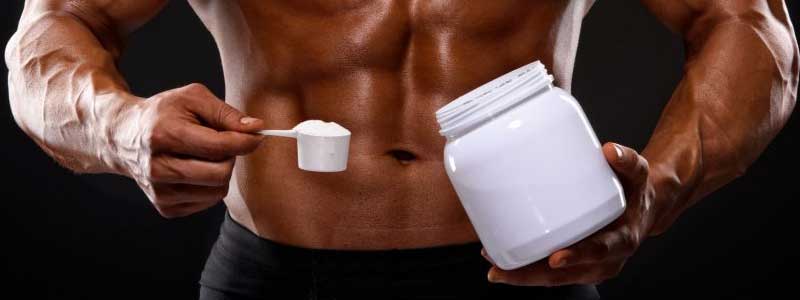
Most creatine supplements above use a dose of 5g of creatine per serving. Most studies, meanwhile, require participants to take 15g to 20g of creatine per day, split up into multiple 5g doses.
However, other studies have indicated that the benefits of creatine supplementation can be seen at doses as low as 3g per day.
If you’re taking more than 5g of creatine per serving or 20g of creatine per day, you’re unlikely to see any additional benefits from creatine supplementation. At a certain point, your muscles become saturated with creatine. Any additional creatine in your system is wasted.
It’s also important to note that those with large amounts of muscle mass require a higher creatine dosage than those with less muscle mass. You have a larger “creatine fuel tank” to fill compared to a smaller person.
Some people take different creatine doses during different cycles. You might be trying to gain muscle mass, for example, and take 15 to 20g of creatine per day during a loading phase, and then drop down to 3 to 5g per day during a maintenance phase.
FAQs About Creatine
Q: What is creatine?
A: Creatine is a simple molecule used by your muscles and your brain. Your muscles use creatine for short-term energy. When your muscles need to rapidly create energy – say, when you’re sprinting or doing heavy resistance training – your muscles generate this energy through the creatine phosphate energy pathway. Creatine also directly stimulates the growth of muscle tissue. Creatine is also used for energy in the brain, which could possibly reduce concussion symptoms and help your brain react to stressful situations.
Q: What is creatine monohydrate?
A: Creatine monohydrate is just a creatine molecule paired with a single water molecule.
Q: What is creatine anhydrous?
A: Creatine anhydrous is created when you remove the water molecule from creatine monohydrate. This increases the amount of creatine in each dose.
Q: Is creatine anhydrous better than creatine monohydrate?
A: Creatine anhydrous is 100% creatine by weight, while creatine monohydrate is 90% creatine by weight. It’s not a huge difference, but creatine anhydrous is certainly the purer form of creatine.
Q: What are the different types of creatine? What do they mean?
A: There are six major types of creatine, including creatine anhydrous, creatine monohydrate, creatine ethyl ester, creatine hydrochloride, buffered creatine, liquid creatine, and creatine magnesium chelate. Generally, creatine anhydrous and creatine monohydrate are the two most-studied and popular versions of creatine. Growing research, however, may eventually show that other versions of creatine are more effective or bioavailable.
Q: Which foods have the most creatine?
A: Red meat and fish are the best food sources of creatine. Steak, salmon, chicken, herring, venison, tuna, pork, and cod are all very rich with creatine.
Q: How much meat or fish should I eat to get an equivalent dose of creatine?
A: Creatine supplements are the best, cheapest, and easiest way to get the recommended daily dose of creatine (20g per day). One pound of raw beef or salmon, for example, provides just 1 to 2g of creatine, which means you’d have to eat a lot of meat to get an equivalent dose.
Q: What does creatine do?
A: Creatine is used by your muscles to generate short-term power. When your body suddenly needs a lot of power – say, when sprinting or bench-pressing a heavy weight – it relies on creatine to get converted into energy.
Q: Is creatine just for those who want to bulk up?
A: Some people take creatine to bulk up and gain muscle mass. However, creatine is also used by people achieving all different body goals. Some people slim down while taking a smaller dose of creatine, for example. Creatine has a proven ability to increase lean muscle mass, which means you may be able to lose weight while gaining strength.
Q: Is creatine just for bodybuilders?
A: Creatine can be used by bodybuilders. However, it has also proven to be effective among the elderly (for preventing frailty) or nootropic users (for enhancing brain power). Some people take creatine with no intentions of lifting weights at all.
Q: Do vegetarians have less creatine than non-vegetarians?
A: Vegetarians often have less creatine than non-vegetarians. The most common creatine sources are from meat, so vegetarians may have less creatine even when following an otherwise healthy diet.
Q: Is creatine bad for you?
A: Creatine is generally well-tolerated in all major studies. Few major side effects have been reported. However, you should talk to your doctor before taking any supplement. Creatine is also not recommended for those with kidney disease, liver disease, or high blood pressure.
Q: Should I be taking creatine?
A: Creatine can support various health goals. However, it may not be the right choice for everyone. Those in endurance sports like running or cycling, for example, will get fewer benefits from creatine than those in sports involving short-term, high-intensity bursts.
Q: Is creatine bad for your kidneys?
A: Some believe that creatine can stimulate the generation of toxic compounds in your kidneys called HCAs, particularly when taking large doses of creatine for a long period of time. However, long-term studies on creatine – like this one – have found no significant changes in blood biomarkers of kidney health. Few studies on creatine have focused specifically on those with existing kidney disease, however.
Q: When should I take creatine?
A: Most studies require participants to take 15 to 20g of creatine per day, split into several daily doses of 5g each. There’s limited research showing that creatine is more effective at one time of day than another, however. As long as you split the dose throughout the day, you should be able to enjoy the benefits of creating.
Q: Do I need to cycle creating? How does creatine loading work?
A: Some people cycle on and off creatine. Others call it “creatine loading”. The idea is that you rapidly increase creatine levels within your muscles when “loading”, then maintain those high levels at a lower dose when “maintaining”. You might take 20g of creatine when loading, for example, and then drop down to 2g per day during a maintenance phase. There’s been limited research on this topic, but creatine while alternating between a maintenance phase and loading phase remains popular.
Final Word
Creatine is one of the most research-backed bodybuilding supplements you can take. New research, however, has showed creatine may benefit you in more than just bodybuilding. Creatine can help older adults reduce frailty, for example, and boost brain power similar to a nootropic. Plus, creatine does all of these things with minimal side effects reported.


